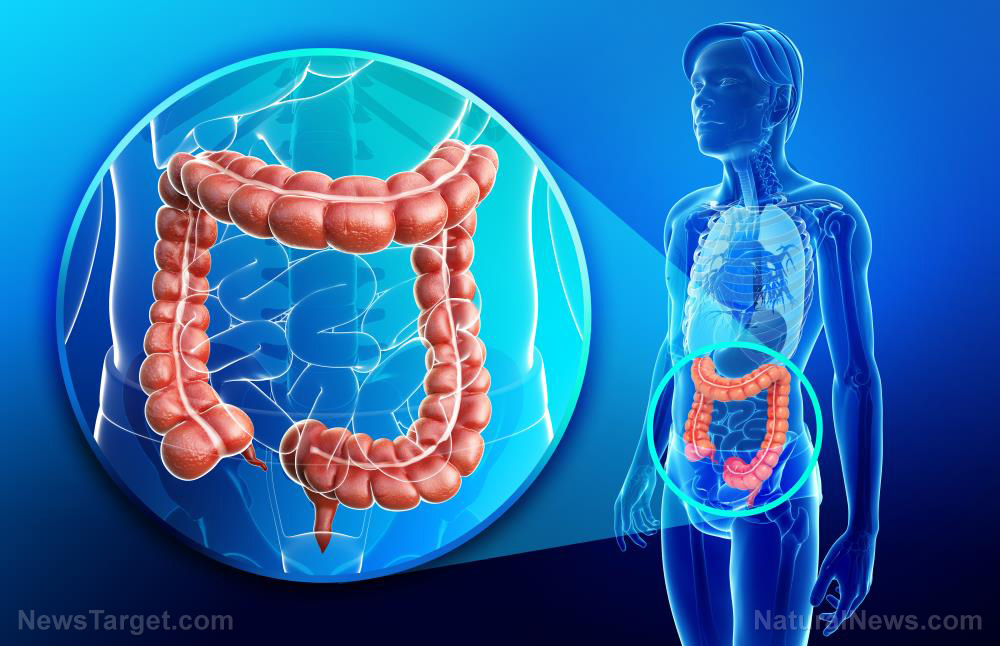Prolonged exposure to air pollution triggers inflammation, appearance of cancer-related genes
08/15/2020 / By Divina Ramirez

Prolonged exposure to air pollution can trigger inflammation and the appearance of cancer-related genes, according to a recent study published in Scientific Reports. In the report, a team of researchers from Cedars-Sinai Medical Center and the University of California Los Angeles (UCLA) looked at how toxic metals found in coarse particulate matter trigger molecular events that precede inflammation and tumor development.
Exposure to PM can affect human health
Cities, large urban settlements and other urban areas all face the same problem of air pollution. Considered a public health threat, air pollution is responsible for more than 6 million deaths each year, according to recent reports from the World Health Organization.
In fact, ambient air pollution alone caused about 4.2 million deaths in 2016. This pollution is due to cars, trucks, factories and the like. Household air pollution, on the other hand, caused an estimated 3.8 million deaths in the same period.
These figures indicate that the health effects of air pollution are serious. In fact, another report found that air pollution is implicated in one-third of the deaths due to stroke, lung cancer and heart disease. This figure is almost equal to that of deaths due to smoking.
Some of the most common pollutants include nitrogen dioxide from road traffic, sulfur dioxide from burning fossil fuels and PM. PM is a mix of solid and liquid droplets suspended in the air, and it is used as a measure for air pollution. Of the three, PM affects human health the most.
For starters, particles that measure 10 microns or less in diameter can enter the mouth and get lodged deep inside the lungs. These particles can also get in through the nose and end up in the brain.
Particles that measure 2.5 microns or less in diameter, on the other hand, breach the lung barrier, enter the bloodstream and penetrate organs, including the heart and the brain, thus causing health complications.
Besides triggering asthma and raising the risk of heart disease, PM has also been found to cause cancers of the lungs and brain. (Related: Exposure to air pollution found to increase risk of chronic kidney disease.)
But prior to this most recent research, the mechanisms behind PM’s role in cancer risk and potential neurodegeneration had been unclear.
Metals in coarse PM can induce genetic changes related to cancer
To better understand these mechanisms, scientists from Cedars-Sinai Medical Center and UCLA attempted to isolate the specific disease-causing components in pollutants found in Los Angeles Basin ambient air pollution.
The team isolated PM from ambient air pollution and classified them according to the size of their diameters. Coarse PM measured 2.5 to 10 microns in diameter, fine PM measured less than 2.5 microns in diameter and ultrafine PM measured less than 0.25 microns in diameter.
The team then studied their chemical compositions and found that all PM samples contained traces of hazardous metals, including cadmium, lead, nickel, cobalt, vanadium and zinc (in excessive amounts).
The team then exposed groups of Fisher rats to coarse PM, fine PM, ultrafine PM or filtered air separately. It appeared that rats in all four experimental groups had accumulated detectable amounts of nickel, cobalt and zinc in their brains.
Furthermore, exposing the rats to coarse PM, fine PM and ultrafine PM for one to three months led to greater amounts of detectable metals in their brains.
The team then examined eight genes linked to inflammation and the formation of tumors upon short-term and prolonged exposures (one month) to coarse PM.
Four of these eight genes demonstrated significant stimulation in rat brains after prolonged exposure to coarse PM.
One of the four genes, called EGR2, promotes the proliferation of non-small cell lung cancer. Ras-related botulinum toxin substrate 1 (RAC1) gene, another one of the four genes, is linked to tumor progression. The remaining genes had also been found to be good indicators of inflammation and tumor formation.
Taken together, these results demonstrate that prolonged exposure to coarse PM from ambient air pollution can trigger inflammation and stimulate cancer-related genes in rat brains.
Lead author and director at Cedars-Sinai Medical Center Julia Ljubimova noted that their research has great implications for the assessment of air pollution in the region.
Furthermore, although the research is unique to air pollution in the Los Angeles Basin, the same harmful effects of air pollution might also be rampant in other major cities, she added.
Therefore, these findings underscore the importance of reducing air pollution and shedding light on the potential health risks related to it.
Read more articles about the potential health risks of air pollution at Pollution.news.
Sources include:
Tagged Under: biomedical research, future science, lung cancer, particulate matter, tumors


















